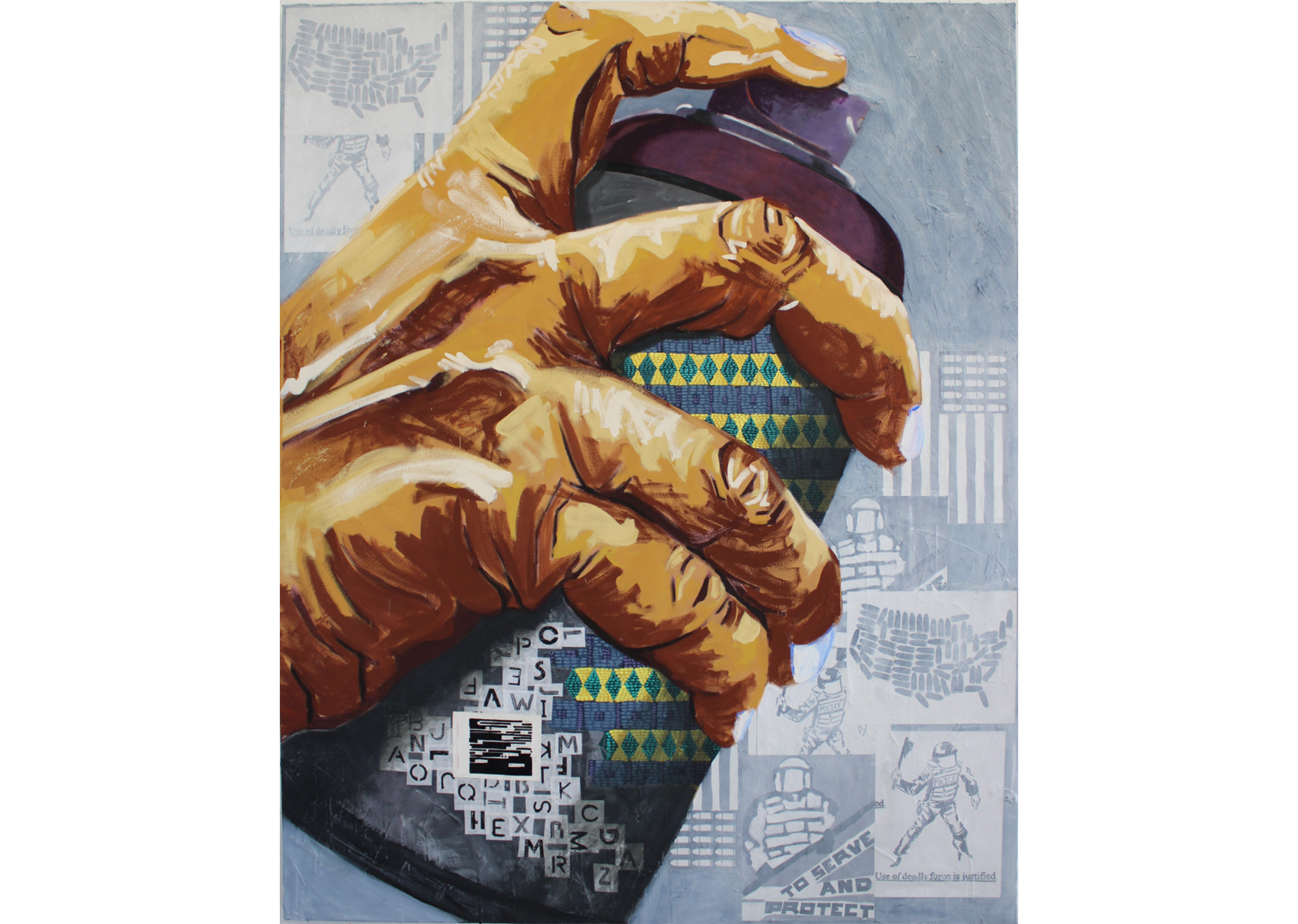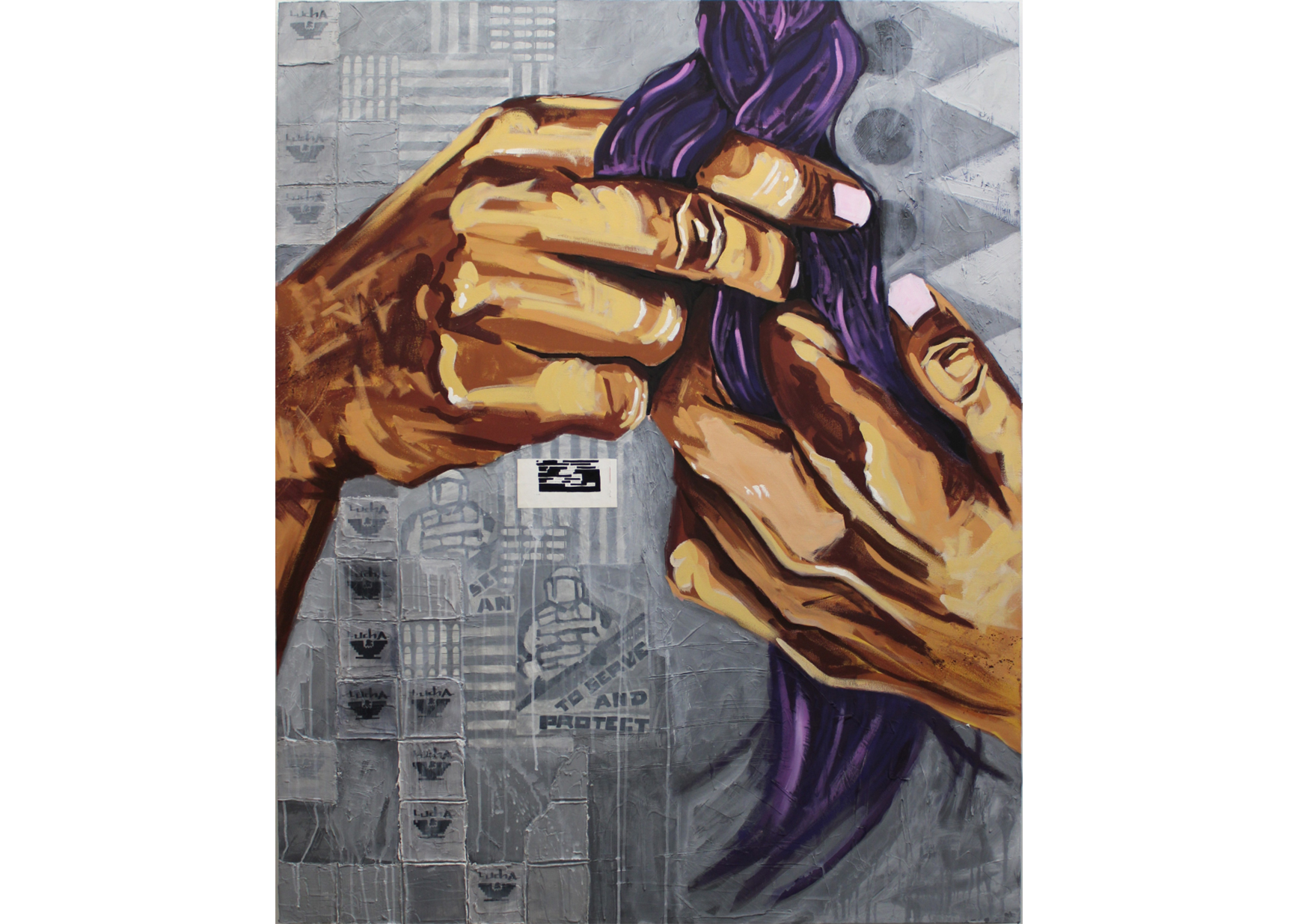The Uncut Truth: Hip Hop, Race, and the Cultural Revolution is the accompanying exhibition to our 3rd Annual Hip Hop Cultural Summit. The show features two works by Oscar Eduardo de Paz: The Resistance Can’t Be Whitewashed and Creative Destruction. The two artworks are part of the artist’s ongoing exploration of everyday objects as powerful vessels of memory and storytelling.
The Resistance Can’t Be Whitewashed shows a pair of hands braiding purple strands of hair against a background of grey and whitewashes, overlaid with the words “to serve and protect.” The piece was inspired by Whitewashed by Sonya Clark, part of the Delaware Art Museum’s permanent collection—a white-painted American flag symbolizing the nation’s tendency to erase the histories of people of color. Drawing from this, de Paz uses the intimate act of braiding as a metaphor for reintegrating those suppressed stories. He describes the whitewashing on the canvas as “a literal example of whitewashing over symbols of violence,” and incorporates Latinx resistance imagery, such as the United Farm Workers of America union Aztec eagle, to root the piece in his own heritage.

The second work, Creative Destruction, engages directly with Hip Hop’s visual language. A hand holds a spray paint can over a collage of American symbols, including a map of the U.S. and images of protest and policing. The spray can, long associated with Hip Hop, graffiti, and reclaiming public space, features a blackout poem embedded in its surface:
“creative,
embrace all the
destructive intentions of art –
enduring lies to be
‘faithful to nature’.
survive,
produce works
for the future is formed
in the movement”
de Paz describes his work as “poetic symbolic representation.” In Creative Destruction, the fusion of bold visuals and layered text captures Hip Hop’s rebellious spirit. The hand holding the can, the act of graffiti, and the collaged letter forms all work together to show the nature of creation as one that inevitably entails destruction. de Paz mentions that “to create authentically sometimes means dismantling lies, exposing systems of control, and marking space with truth”.
Come check out these two works along with several other wonderful artworks on view through October 26 in the Jefferson Lobby.
Top: The Resistance Can’t Be Whitewashed, Oscar Eduardo de Paz (born 1982), casein, collage, and black-out poem. Courtesy of the artist.


